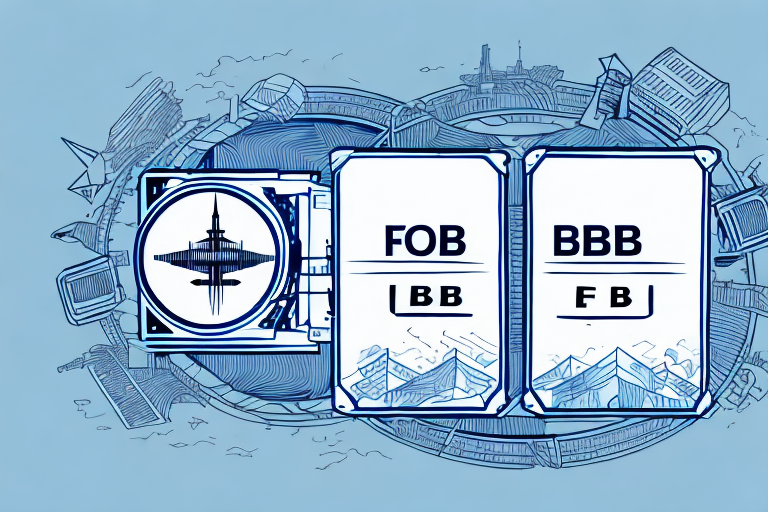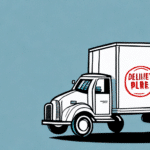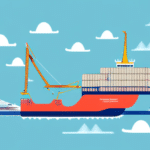Comparing FOB Destination and FOB Origin: What You Need to Know
When it comes to international trade, one of the most important decisions you’ll make is choosing the right Incoterm for your business needs. Two popular options are FOB (Free on Board) Destination and FOB Origin. Both terms dictate when the responsibility for the goods shifts from the seller to the buyer, and where the risk of loss or damage lies. However, there are significant differences between the two that you should understand before making a choice. In this article, we’ll be exploring the basics of FOB Destination and FOB Origin, their advantages and disadvantages, factors to consider when choosing between them, and how to negotiate better deals with your suppliers.
Understanding the Basics of FOB Destination and FOB Origin
FOB Destination means that the seller is responsible for the goods until they’re delivered to the buyer’s premises. Therefore, the seller pays for the freight costs to transport the goods to the buyer’s location. The title of the goods and the risk of loss or damage remain with the seller until they’re unloaded at the buyer’s premises.
FOB Origin, however, shifts the responsibility of the goods from the seller to the buyer once the goods are loaded on the vessel at the port of origin. In this case, the buyer arranges and pays for the freight costs to transport the goods to their destination. The risk of loss or damage passes from the seller to the buyer when the goods are loaded onto the vessel.
It’s important to note that FOB Destination and FOB Origin are just two of many Incoterms that define the responsibilities of buyers and sellers in international trade. Other Incoterms include EXW (Ex Works), CIF (Cost, Insurance, and Freight), and DDP (Delivered Duty Paid), among others. Each Incoterm has its own set of rules and regulations that must be followed to ensure a smooth transaction.
When choosing an Incoterm, it’s important to consider factors such as the type of goods being shipped, the distance between the buyer and seller, and the level of risk each party is willing to take on. By carefully selecting the right Incoterm, both the buyer and seller can ensure a successful transaction that meets their needs and expectations.
Advantages and Disadvantages of FOB Destination
The primary advantage of FOB Destination is that the seller bears the risk and cost of transporting the goods to the buyer’s premises, making it a more attractive option to buyers who don’t want to bear the cost or risk of transporting goods. This term also gives the buyer more control over the shipping process and delivery schedule. However, the main disadvantage of FOB Destination is that the seller has to arrange for the transportation, which can be both time-consuming and expensive.
Another advantage of FOB Destination is that it can help build stronger relationships between buyers and sellers. By taking on the responsibility of transporting goods to the buyer’s premises, the seller is demonstrating a commitment to customer satisfaction and building trust with the buyer. This can lead to repeat business and positive word-of-mouth recommendations.
On the other hand, one of the disadvantages of FOB Destination is that the buyer may have less control over the quality of the goods being transported. If the seller is responsible for arranging transportation, they may choose a cheaper or less reliable carrier, which could result in damage to the goods during transit. Additionally, if the goods are delayed or lost in transit, the buyer may have to wait longer to receive their order or may need to file a claim with the carrier, which can be a time-consuming and frustrating process.
Pros and Cons of FOB Origin
One major advantage of FOB Origin is that the buyer has more control over the transportation process, making it a more attractive option to sellers who don’t want to bear the cost or risk of transporting goods. This term can also result in faster delivery times, as the buyer has more control over the shipping process. However, the main disadvantage of FOB Origin is that the buyer bears the risk and cost of transporting the goods, making it less attractive to buyers who don’t want to take on that responsibility. Furthermore, if anything goes wrong during transportation or delivery, the buyer is responsible for any damages or losses.
How FOB Destination and FOB Origin Differ from Each Other
The main difference between FOB Destination and FOB Origin is the point at which the responsibility for the goods is transferred from the seller to the buyer, and where the risk of loss or damage lies. With FOB Destination, the seller is responsible for the goods until delivery, while with FOB Origin, the buyer assumes responsibility once the goods are loaded onto the vessel.
Factors to Consider When Choosing Between FOB Destination and FOB Origin
When choosing between FOB Destination and FOB Origin, several factors should be considered. These include the cost of transportation, the level of control the buyer wants over the shipping process, delivery times, and the risk of loss or damage. It’s also essential to consider the type of goods being shipped, as some products may require more specialized transportation and handling. Other relevant factors include the buyer’s location and the seller’s location, as these can affect the transportation costs and delivery times.
Which Option is Best for Your Business: FOB Destination or FOB Origin?
Ultimately, the best choice between FOB Destination and FOB Origin depends on your business needs and preferences. If you want more control over the shipping process, faster delivery times, and are willing to bear the costs and risks of transporting goods, then FOB Origin may be the best option for you. On the other hand, if you want the seller to assume more responsibility for the goods, have more control over delivery times, and are willing to pay a higher price for transportation, then FOB Destination may be the way to go. It’s essential to evaluate your business needs and weigh the advantages and disadvantages of both options before making a decision.
The Impact of Incoterms on FOB Destination and FOB Origin
It’s worth noting that choosing between FOB Destination and FOB Origin is just one aspect of the broader topic of Incoterms. Incoterms are international trade terms that define the rights and responsibilities of the buyer and seller. The choice of Incoterm depends on the mode of transportation and the type of goods, among other factors. Both FOB Destination and FOB Origin are Incoterms used for sea and inland waterway transportation, and it’s essential to understand the impact of Incoterms on your business before making a choice.
Understanding the Risks Involved in FOB Destination and FOB Origin
Both FOB Destination and FOB Origin come with inherent risks that should be considered when selecting an Incoterm for your business needs. With FOB Destination, there’s a risk that the seller may not deliver the goods in good condition or on time, and the buyer may incur additional expenses associated with delayed or lost shipments. With FOB Origin, the buyer is responsible for the goods during transportation, and there’s a risk that the goods may be damaged or lost in transit. It’s crucial to evaluate these risks and take steps to mitigate them, such as using a reliable supplier or carrier, purchasing insurance, or negotiating clear terms when contracting with suppliers.
How to Negotiate Better Deals with Your Suppliers Using FOB Destination or FOB Origin
Negotiating better deals with your suppliers is critical to reducing your transportation costs and managing your risk exposure. When using FOB Destination, you can negotiate lower transportation costs by consolidating your shipments or using a local carrier. With FOB Origin, negotiating better deals may involve working with a logistics provider to manage your shipping process and leveraging your buying power to negotiate better rates with carriers. It’s essential to communicate your needs and preferences clearly, understand the local transportation landscape, and negotiate terms that align with your business goals and strategies.
Tips for Successful Implementation of Either Incoterm: FOB Destination or FOB Origin
Successfully implementing either Incoterm requires careful planning and execution. When using FOB Destination, it’s crucial to communicate delivery expectations clearly and work with your supplier to ensure goods are delivered on time and in good condition. For FOB Origin, it’s essential to work with a reliable logistics provider to manage the shipping process and ensure goods are delivered on time and in good condition. It’s also important to perform due diligence when selecting suppliers and carriers, understand the customs and regulations of the countries involved, and keep accurate records of your transactions.
Common Mistakes to Avoid When Using Either Incoterm: FOB Destination or FOB Origin
Adopting either Incoterm comes with potential pitfalls that should be avoided. With FOB Destination, common mistakes include failing to negotiate clear terms and delivery expectations, not accounting for additional costs associated with delivery delays or damage, and not having a backup plan if the supplier is unable to deliver the goods. With FOB Origin, common mistakes include selecting an unreliable carrier, not purchasing insurance, and not exploring alternative transportation methods. Avoiding these mistakes requires careful planning, thorough research, and strong communication with your suppliers and logistics providers.
Comparing Freight Costs under Both Incoterms: FOB Destination and FOB Origin
The cost of freight is a critical consideration when choosing between FOB Destination and FOB Origin. With FOB Destination, the seller is responsible for the cost of transportation, which can make it a more expensive option for buyers. With FOB Origin, the buyer assumes the cost of transportation, which can result in lower costs for the seller. However, other factors such as the location of the supplier and buyer, the type of goods, and the mode of transportation can also affect the cost of freight. It’s important to understand all of these factors when comparing costs and making a decision.
How to Handle Disputes in Transactions Involving Either Incoterm: FOB Destination or FOB Origin
Disputes can arise in transactions involving either Incoterm, and it’s essential to have a plan in place to resolve them. The first step is to draft clear contracts that outline the terms of the transaction and the roles and responsibilities of all parties involved. If a dispute arises, it’s important to communicate with the other party and try to resolve the issue through negotiation or mediation. If resolution isn’t possible, legal action may be necessary. It’s also essential to keep accurate records of all transactions and maintain a good relationship with your suppliers and buyers to help avoid disputes.
Conclusion: Which is Best for You?
Choosing between FOB Destination and FOB Origin is a critical decision that should not be taken lightly. Both options come with their advantages and disadvantages, and your choice ultimately depends on your business needs and preferences. Understanding the basics of each term, evaluating the risks and costs involved, and negotiating effective deals with your suppliers are all essential steps to making an informed decision. Regardless of which option you choose, careful planning and execution are essential to successfully implementing your chosen Incoterm and ensuring smooth international transactions.




















